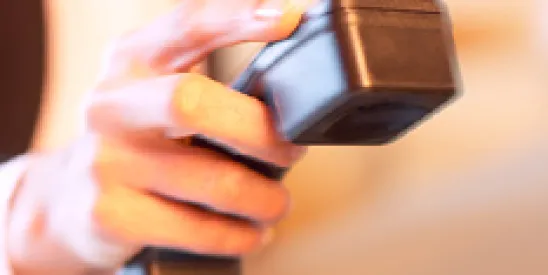The risk to platform providers has steadily increased over the last year, and with a stunning grant of a re-hearing by the Sixth Circuit Court of Appeal on a key issue regarding liability for calls made by others, the TCPA just became all the more dangerous.
This story is a long and winding one. Pro se Telephone Consumer Protection Act (TCPA) plaintiff Vincent Lucas is, without a doubt, persistent. Since 2012, he has been litigating his TCPA lawsuit in the courts of the United States Sixth Circuit against three defendants claiming they were vicariously liable for assisting (through their platforms) telemarketer clients who made calls, some of which were prerecorded, to his Do-Not-Call-listed residential phone number. The latest (but perhaps not the last) chapter in this saga is recounted in Lucas v. Telemarketer Calling, 2019 U.S. App LEXIS 32923, United States Court of Appeals for the Sixth Circuit, November 1, 2019.
At the risk of exceeding my page limit, here is the winding tale.
Lucas initially further supported his vicarious liability claims by asserting that the defendants provided “substantial assistance” to their telemarketer clients while knowing that those clients “engaged in practices that violate the TCPA….” Remember that key allegation!!
After a failed settlement attempt, the defendants moved to dismiss on the grounds that Lucas had failed to allege facts establishing vicarious liability. In March of 2014, a Magistrate Judge agreed and recommended that the TCPA claims be dismissed, relying primarily on the Federal Communications Commission’s (FCC) decision in In re Dish Network LLC. The Magistrate Judge also recommended rejecting Lucas’s arguments that the defendants could be held liable under the TCPA for “aiding and abetting” illegal telemarketing calls.
There the case apparently sat until June of 2015 when Lucas told District Court Judge S. Arthur Spiegel that he had filed a petition for expedited declaratory ruling with the FCC “on whether ‘a person is vicariously or contributorily liable if that person provides substantial assistance to any…telemarketer when that person knows or consciously avoids knowing that the …telemarketer is engaged in any act or practice” that violates the TCPA’”. At Lucas’s request, the District Court granted a stay pending FCC action on his FCC petition.
Two years passed, and, in June of 2017, the District Court lifts the stay and adopts the Magistrate Judge’s recommendation from March of 2014. Lucas then unsuccessfully attempts to amend his complaint a fourth time – to incorporate more recent FCC rulings, including the Commission’s July 2015 Omnibus TCPA ruling (Omnibus Ruling) addressing a series of TCPA petitions (but not specifically his) along with an enforcement ruling, In Re DialingServices. However, the District Court agrees with the Magistrate Judge and rejects that amendment attempt based in part on “undue delay.” At Lucas’s request, the District Court formally dismisses the case with prejudice in mid-2018 so he can appeal.
Are we there yet? Patience, please.
On to the Sixth Circuit, where a three-judge panel affirms the District Court, saying it “properly dismissed Lucas’s vicarious and contributory liability claims, even after considering the FCC’s subsequent rulings….” In doing so, the panel relies on the traditional agency principals for vicarious liability first outlined by the FCC in its Dish decision. Undeterred, Lucas asks the entire Sixth Circuit to revisit the panel’s decision – en banc. No judges vote to do so.
But, the en banc petition apparently stirred the original three-judge panel to reexamine what it had done. In retrospect, the judges now find that their decision gave “to much weight” to the Dish agency principles “without adequately considering the FCC’s subsequent decisions.” The same panel now noted the FCC’s “totality of the circumstances” test outlined in the Omnibus Ruling for determining “whether the platform provider is so involved in placing the calls as to be deemed to have initiated them.” But, “our prior order did not fully consider” certain FCC-outlined factors under that test, including “whether a person who offers a calling platform service for the use of others has knowingly allowed its client(s) to use that platform for unlawful purposes.”
Remember that key allegation mentioned above?
Since the 2014 Magistrate Judge’s decision preceded these “subsequent FCC decisions,” the Sixth Circuit granted a petition for rehearing and sent the case back to the District Court to consider the “applicability of those decisions” to Lucas’s allegations.
And, by the way, “we instruct the district court to inquire as to the status of Lucas’s June 18, 2014, petition to the FCC for a declaratory ruling.”
An unusual rehearing twist and turnabout in TCPAWorld. The key, of course, is that the Sixth Circuit Court of Appeal recognized that platform providers might be liable beyond the mere auspices of agency and vicarious liability. Specifically, even in the absence of agency might a platform provider be liable merely because it “knowingly allowed its client(s) to use that platform for unlawful purposes[?]” Next chapter – to be determined.




 />i
/>i

